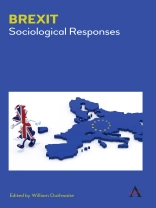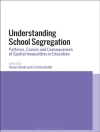Soon after the UK referendum in June 2016, sociologists and other social scientists began to evaluate the implications of the decision both for the UK and, more importantly, for the European Union, Europe and the world. Some of these consequences were immediately evident. The vote revealed cleavages across the UK on a regional and class basis, paralleled, for example, in the support in France for the extreme-right Front National versus the Socialist Party. In the UK, there has been a revival of a kind of class politics, in which working-class voters swing right rather than left. The regional divisions are hard to explain: the most deprived areas of the UK, which have benefited substantially from EU development aid, were often those most hostile to UK membership of the EU.
In the rest of Europe, the vote has opened up as a serious prospect what was previously only a pipe-dream of the political fringes: withdrawal from the EU itself. Although one can put this in the context of the Union’s failure to attract the support of enough voters in Norway and Switzerland for membership, the shock effect is incomparably greater. The UK was always a semi-detached member state, with opt-outs from Schengen and the euro, but it still carried substantial weight in the formation of EU policy. Although one of the immediate responses has been a rise in support for the EU across much of Europe, Brexit has massively strengthened the forces of (mostly right-wing) populist insurgent politics, adding withdrawal to the more local themes of migration and ‘islamization’ which play out in different variations across Europe.
Brexit aims to trace the implications of the UK’s projected withdrawal from the EU, locating short-term political fluctuations in a broader historical and social context of the transformation of European and global society. It provides a forum for leading Eurosociologists (broadly defined), working inside and outside the UK, to rethink their analyses of the European project and its prospects, as well as to reflect on the likely implications for the UK.
विषयसूची
Preface by William Outhwaite; Section 1. How Did It Happen? 1. The Increasing Inevitability of That Referendum – Martin Westlake; 2. Vox Populi: Nationalism, Globalization and the Balance of Power in the Making of Brexit – Jonathan Hearn; 3. Exit from the Perspective of Entry – John Holmwood; 4. Brexit, Sovereignty and the End of an Ever Closer Union – Stefan Auer; Section 2. The Politics of Brexit; 5. Populism, Nationalism and Brexit – Craig Calhoun; 6. A Tale of Two Constitutions: Whose Legitimacy? Whose Crisis? – Chris Thornhill; 7. Locating Brexit in the Pragmatics of Race, Citizenship and Empire – Gurminder K. Bhambra; 8. Globalization, Nationalism and the Changing Axes of Political Identity – Colin Crouch; 9. A Divided Nation in a Divided Europe: Emerging Cleavages and the Crisis of European Integration – Gerard Delanty; Section 3. Prospects For/ After Brexit; 10. The EU and Brexit: Processes, Perspectives and Prospects – Tim Oliver; 11. The Impossibility of Disentangling Integration – Antje Wiener; 12. No Exit from Brexit? – Simon Susen; 13. Critical Theory, Brexit and the Vicissitudes of Political Economy in the Twenty- First Century – Harry F. Dahms; 14. European Union versus European Society: Sociologists on ‘Brexit’ and the ‘Failure’ of Europeanization – Adrian Favell; Notes on Contributors; Index.
लेखक के बारे में
Previously a professor at the University of Sussex, William Outhwaite is currently emeritus professor of sociology at Newcastle University.












